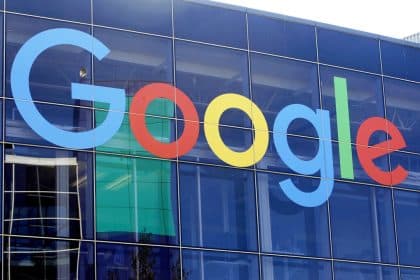Attorneys General Sue Google For Anticompetitive Practices

Attorneys general from 36 states and Washington, D.C., hit Google LLC with yet another antitrust lawsuit Wednesday, accusing the company of unfair business tactics to monopolize sales of apps used on Android phones.
The lawsuit says Google bought off competitors and requires restrictive contracts that leave Android users and application developers no alternative but to use the Internet search engine’s app store.
It further describes Google’s commissions on sales of the apps as “extravagant.”
If successful, the lawsuit could force Google to revamp its advertising as well as sales of apps and smart home devices. Together, the ads and sales produce billions of dollars a year for the company.
“Google leverages its monopoly power with Android to unlawfully maintain its monopoly in the Android app distribution market,” the lawsuit says. “Google’s app store, called Google Play Store, blocks competitors from its marketplace and prevents them from advertising on the company’s Internet sites,” the lawsuit says.
Google responded with a statement that denied the allegations.
“Android and Google Play provide openness and choice that other platforms simply don’t,” the company posted on its blog. It added that the lawsuit resulted from complaints by a small number of major app developers seeking preferential treatment.
“Otherwise, Google Play Store offers small businesses and consumers good deals they could not get elsewhere,” the company said.
Unlike Apple Inc.’s competing App Store for iPhones, Android phones allow access to other companies’ apps, Google said.
The lawsuit accuses Google and its parent company, Alphabet Inc., of seven violations of the Sherman Antitrust Act and other state law offenses.
Google and tech giants Apple and Twitter have been facing growing political pressure in the past year over their market dominance.
The investigation, started in September 2019 by the attorneys general, claims to have found internal company documents that speak of a deal to buy off Samsung Electronics Co. Samsung’s app store previously created a competitive threat to Google. However, several secret projects by Google are used to pay Samsung to stop competing, the lawsuit says.
Google Play controls 90% of Android apps downloaded in the United States, according to the lawsuit. Google often requires consumers to use its payment tools for apps, sometimes giving it a 30% markup on sales, the lawsuit says. Other app markets typically charge a 3% markup, which means app developers and consumers are paying prices that cannot be justified in a competitive marketplace, the lawsuit continued.
“Google forces the consumer to continue doing business with it and to indefinitely pay Google’s supracompetitive commissions,” the lawsuit says, also claiming that by forcing developers and app users alike to use Google Pay, the company is easily able to extract these commissions forcibly and increase consumer prices.
It adds, “In a more competitive environment, Google’s app distribution monopoly could be disrupted. Instead, because of Google’s exclusionary conduct, even Amazon, one of the biggest and most sophisticated content distributors, has tried but failed to create a competitive Android app store that could weaken Google’s app distribution monopoly through free and fair competition.”
The coalition of attorneys general is led by the state of Utah and co-led by the attorneys general of New York, North Carolina and Tennessee, are joined by Alaska, Arkansas, Arizona, California, Colorado, Connecticut, Delaware, District of Columbia, Florida, Idaho, Indiana, Iowa, Kentucky, Maryland, Massachusetts, Minnesota, Mississippi, Missouri, Montana, Nebraska, Nevada, New Hampshire, New Jersey, New Mexico, North Dakota, Oklahoma, Oregon, Rhode Island, South Dakota, Vermont, Virginia, Washington, and West Virginia.
Utah’s state attorney general office did not return a request for comment in time for publication.
Jeffrey Jacobovitz, partner at Arnall Golden Gregory and former Federal Trade Commission attorney, said cases like that filed by the attorneys general typically turn on the defendant’s market power and economic testimony.
It was the former, in fact, that inspired U.S. District Court Judge James Boarsberg to dismiss an FTC lawsuit against Facebook last month.
In his ruling, Boarsberg said Facebook’s “market power wasn’t sufficiently alleged” in the agency’s complaint.
This recent development could encourage Google to put up a fight against its numerous lawsuits, particularly during the motion to dismiss and discovery stages, Jacobovitz said.
The California-based tech giant could also point to its competitor, Apple, as operating similarly.
Nevertheless, “the more cases you bring, probably the more likely there will be some sort of global settlement,” Jacobovitz said.
Charlotte Slaiman is the competition policy director at Public Knowledge, a Washington, D.C. based nonprofit that promotes freedom of expression, an open internet, and access to affordable communications tools and creative works.
“Google is definitely going to be assessing their litigation risk,” Slaiman said when asked about the latest lawsuit against the tech giant.
How that process turns out depends on what the states “are insisting on” in terms of relief, she said.
That could end with the civil penalties mentioned in the lawsuit, or it could be a structural remedy imposed by the court that forced Google divests a business unit or a behavioral remedy that prohibits exclusionary contracts or a hybrid approach.
“Remedies that actually require changes to how the business is running are more valuable than fines,” Slaiman said. And Google can likely afford any fine leveraged against it. Anything less than a substantial operational change that “[opens] up the marketplace for competition” would miss the mark, she said.






















